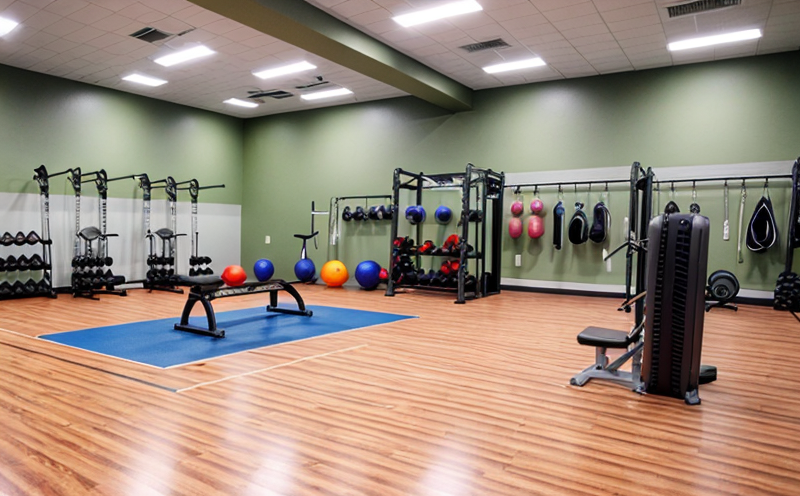Faceguard Strength Testing in Helmets
In the realm of consumer product safety testing, particularly within the category of sporting goods and fitness equipment, faceguards are an integral component ensuring user protection. The strength testing of these faceguards is a critical aspect to guarantee that helmets meet stringent safety standards. This service ensures that faceguard materials and designs can withstand the forces they might encounter during use or in accidents.
The testing process involves several steps, starting with the selection of appropriate specimens for testing. Specimens are typically representative parts of the faceguards, chosen to mimic real-world conditions. Proper specimen preparation is crucial as it directly impacts the accuracy and reliability of test results.
Testing methods vary depending on the specific requirements set by international standards such as ASTM F1492-23 or EN 1078-2:2016, which specify the testing procedures for helmets with faceguards. These tests often include dynamic loading to simulate impacts that a user might experience during sports activities.
The primary goal of this service is to ensure that faceguards are robust enough to protect users effectively in various scenarios. By adhering to rigorous standards and using advanced instrumentation, we provide precise data on the strength and durability of these components. This information is invaluable for quality managers, compliance officers, R&D engineers, and procurement teams who rely on accurate testing results.
Our service offers a comprehensive approach to faceguard strength testing, incorporating not only mechanical tests but also considerations for environmental factors that can affect performance. For instance, we account for temperature variations which might impact the flexibility or rigidity of materials used in faceguards.
The significance of this testing cannot be overstated. Injuries resulting from improper equipment are a serious concern across various sports and recreational activities. By ensuring that helmets meet these stringent standards, we contribute to enhancing user safety and confidence. This service aligns with broader industry efforts towards improving product quality and reducing potential risks associated with sporting goods.
Moreover, the results of our testing serve as critical input for continuous improvement in design and manufacturing processes. Engineers can use this information to refine their approaches, leading to better-performing products that offer enhanced protection against impacts.
Applied Standards
The faceguard strength testing service is based on several key international standards designed to ensure the safety and performance of helmets. The most commonly referenced are:
- ASTM F1492-23: This standard covers the requirements for protective headgear used in recreational sports activities, including faceguards.
- EN 1078-2:2016: This European standard specifies performance and safety requirements for helmets with visors or faceguards.
These standards outline the specific criteria that must be met to ensure a helmet’s faceguard is strong enough to provide adequate protection. Compliance with these standards not only guarantees product quality but also facilitates easier market entry into regions where these regulations are enforced.
Eurolab Advantages
At Eurolab, we pride ourselves on providing world-class testing services that cater specifically to the needs of our clients. Our expertise in consumer product safety and our commitment to innovation set us apart from other laboratories.
- Comprehensive Testing Capabilities: We offer a wide range of tests tailored to meet individual client requirements, ensuring comprehensive coverage.
- State-of-the-Art Equipment: Our laboratory is equipped with cutting-edge instrumentation that allows for precise and accurate testing results.
- Experienced Professionals: Our team comprises highly skilled and experienced professionals who understand the nuances of each test procedure.
- Global Recognition: Eurolab’s certifications are recognized globally, ensuring seamless compliance with international standards.
International Acceptance and Recognition
Our faceguard strength testing service is widely accepted in numerous countries around the world. Here are some of the jurisdictions where our clients benefit from this service:
- Australia – Compliance with AS/NZS 4699 standards for protective headgear.
- Canada – Adherence to Canadian Standards Association (CSA) Z286.1-15 and Z286.2-15 for helmets used in various sports activities.
- European Union – Conformity with EN 1078-2:2016 for helmets with visors or faceguards.
- The United States – Compliance with ASTM F1492-23 requirements for protective headgear used in recreational sports activities.
These recognitions underscore the reliability and accuracy of our testing methods, making them a preferred choice among manufacturers looking to ensure their products meet global safety standards.





